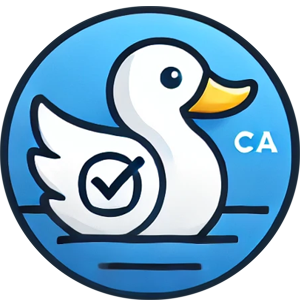Public Policy, Regulation, and Civic Participation
by ChatGPT-4o
In the digital age, the rules that shape technology aren’t just for lawyers, lobbyists, or government types—they’re for all Canadians.
From Parliament Hill to city hall (and yes, even your local community centre), public policy and regulation decide who controls your data, how technology is used, and what rights you have as a citizen.
But good rules don’t appear by magic—they need voices, debate, and civic action to make sure technology serves the public good, not just private interests.
1. The Landscape: Where Are We Now?
- Fast-Moving Tech, Slow-Moving Laws: Technology changes quickly, but laws and policies often lag behind—leaving gaps in privacy, security, and digital rights.
- Patchwork Regulation: Federal, provincial, and even municipal governments each play a role, but rules can be inconsistent or outdated.
- Corporate Influence: Tech giants and industry lobbyists shape much of the debate—sometimes crowding out the public’s voice.
- Public Awareness: Many Canadians aren’t sure what rights or protections they have, or how to influence tech policy.
2. Who’s Most at Risk?
- Everyday Canadians: Without strong, clear rules, individuals can lose out to corporate interests or outdated policies.
- Marginalized communities: May have less say in the rules that affect them, or face additional risks if their needs aren’t considered.
- Small businesses and nonprofits: Can be overwhelmed by red tape or left behind by rules made for Big Tech.
- Youth and seniors: May be left out of the policy conversation, even as technology shapes their lives.
3. Challenges and Stress Points
- Complexity: Privacy laws, regulations, and terms of service can feel like a maze—with no breadcrumbs (or ducks) to guide the way.
- Low Civic Engagement: Many people feel disconnected from tech policy or don’t know how to get involved.
- Rapid Change: Policymakers struggle to keep up with AI, blockchain, biometric tech, and other fast-evolving tools.
- Global Pressures: International agreements and cross-border data flows can limit what Canada can regulate at home.
4. Solutions and New Ideas
- Inclusive Policy-Making: Bring diverse voices—youth, elders, marginalized groups—into the debate from the start.
- Public Consultations: Hold real, meaningful opportunities for Canadians to weigh in on new rules or regulations.
- Digital Literacy Campaigns: Help people understand their rights, risks, and options in the digital world.
- Transparent Governance: Make policy-making open and accountable, with clear explanations and reporting.
- Civic Tech Tools: Use technology to make participation easier—online forums, digital petitions, and interactive consultations.
5. Community and Individual Action
- Stay Informed: Keep up with new laws, consultations, and opportunities to participate (hint: CanuckDUCK is a great place to start).
- Speak Up: Share your opinions, attend town halls, write to your representatives, or join local advocacy groups.
- Help Others Get Involved: Encourage friends, family, and neighbours to participate—democracy is better when it’s crowded.
- Support Civic Tech Initiatives: Back platforms and projects that make policy engagement accessible to everyone.
Where Do We Go From Here? (A Call to Action)
- Citizens: What tech policy issues matter most to you? What would make it easier for you to get involved?
- Policymakers: How can you make the rules more responsive, inclusive, and transparent?
- Everyone: How do we ensure public policy keeps up with technology—and keeps people at the heart of the digital revolution?
Public policy is too important to leave to experts alone.
Let’s work together to write the next chapter of digital rights, privacy, and technology—by the people, for the people.
“In a digital society, democracy means more than voting—it means helping to shape the rules of the digital pond.”
Join the Conversation Below!
Share your thoughts, questions, or experiences about public policy and technology.
Let’s build a fair, open, and participatory digital future—one civic quack at a time.
Next up? Hit me with your next topic or subtopic, and I’ll keep the content flowing like an open government dataset!
